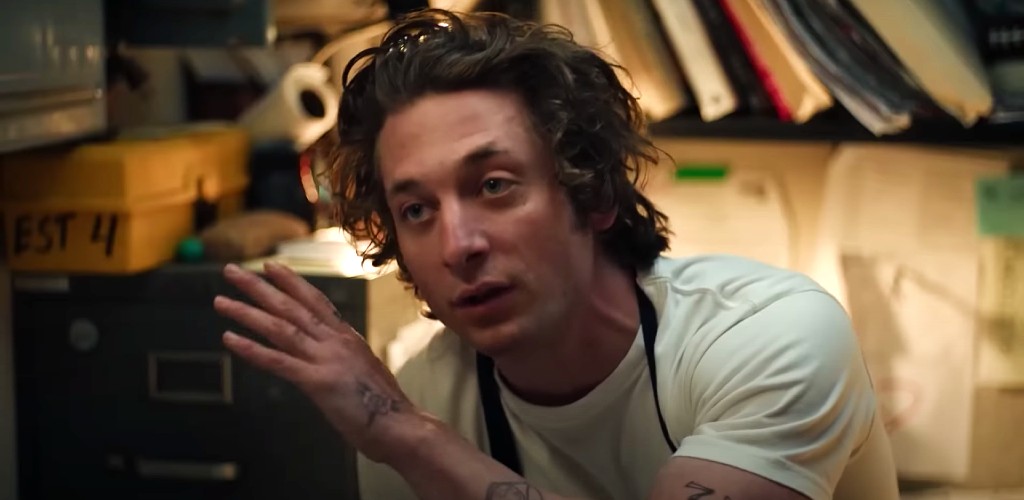
When people find out what I do for a living, they usually ask me what they should watch. My first answer is usually, “well, if you just read my writing, we wouldn’t have to talk about this right now” but my second answer always takes a while. Even though I consume, critique, and analyze film and television for a living, it’s tough to find something worthy of recommendation, especially to a stranger in the Peak TV era. And it’s even tougher to recommend anything definitively because, for every five shows I watch, there are twenty I simply don’t have time to see. What if one of those twenty shows I missed is better, and more suited to someone’s taste? Sometimes, I honestly have to look at what I’ve written recently to even remember what I’ve liked and what I’ve watched. In an era in which we watch so much television that we often forget what television we watched, the details are fleeting memories only weeks, even days after we’ve watched them. And if it’s a Netflix show, I most likely watched it but forgot it so much that I would tell you I didn’t watch it.
Television went from the Golden Age of the late 90s/2000s and straight to Peak TV. TV got so good that everyone wanted to make it, and streaming opened the doors for an unfathomable amount of content. Deeper into the Peak TV era, which has certainly felt longer than it’s actually been, it’s finally peaking, with tv shows that actually resonate, that feel wholly unique and inspiring, the kind of tv shows you can confidently recommend, the kind that will stick with you for the rest of your life.
In 2022, TV became very good again. Right now, there are more hits than misses – a first for the peak tv era, and the hits seem to hit harder. Television has gotten artistic again, just as it did with the arrival of The Sopranos in 1999. This is not to say that there hasn’t been excellent, groundbreaking shows over the years: there’s Succession, Barry, The Righteous Gemstones, I May Destroy You, and Better Call Saul to name a few. Succession’s climb to appointment viewing in its three seasons perhaps inspired many of these shows to create a similar effect and to create something genuinely new rather than a regurgitation of Golden Age shows. Barry’s startling, riveting third season shifted the series’ tone, making it even more singular than the dark comedy already was.
Showtime’s Yellowjackets, which began its first season in late 2021, picked up steam and a devoted audience as its first season was wrapping up in January. The series has powerhouse performances from beloved actors (a Peak TV era signature is bringing back some old faves). It’s also a bold, gripping story that unpacks decades of trauma among a group of Gen X women that presents the nostalgic 1990s as a cruel and violent, but still, ever so slightly nostalgic, nightmare.
Other shows that have made a mark and an impact include Apple TV’s Severance, a visually stunning and intellectually challenging sci-fi series with one of the best season finales ever made, and Hulu’s The Dropout, which turned the dark true story of Theranos founder Elizabeth Holmes into a deep character study that felt both fun, serious, and fresh, unlike so many televised retellings of recent scammer events.
This spring, HBO Max’s The Staircase – a series I was personally dreading as I was expecting more of the same true crime adaptation that tries to make it right but doesn’t – revolutionized the genre. The series (which is another featuring a deep cast of old faves) presents a murder from multiple perspectives and explores the complex dynamic of marriage and life in the American south. More than being about a crime and a flawed trial, The Staircase is about relationships: how they shape you, and how they can end you.
Most recently, FX’s The Bear transformed the workplace comedy. It also transformed an entire generation into Jeremy Allen White stans. The Chicago-set series captures the absolute, never-ending, high-anxiety chaos of working in a restaurant: like if the Safdie brothers directed Top Chef. But the heart of The Bear is what’s made it resonate, and that heart represents why all these other shows resonate, too. While The Bear has a splashy, enticing setting most people want to learn about (or reminisce about if you’re crazy like me), it’s about people. The Bear, like all of the most compelling shows of the Peak TV era including Succession, Yellowjackets, The Dropout, The Staircase, I May Destroy You, and Barry is unpacking what it’s like to be human. In comparison, other shows of the Peak TV era that have long disappeared from our memory felt more like content presented to entice us into subscribing to streaming services or sticking with a network than art. Now, for the first time in years, when somebody asks me what they should watch, I have a list of recommendations in my head I can regurgitate to them. And unfortunately, for each show, I have a twenty-minute monologue prepared.
